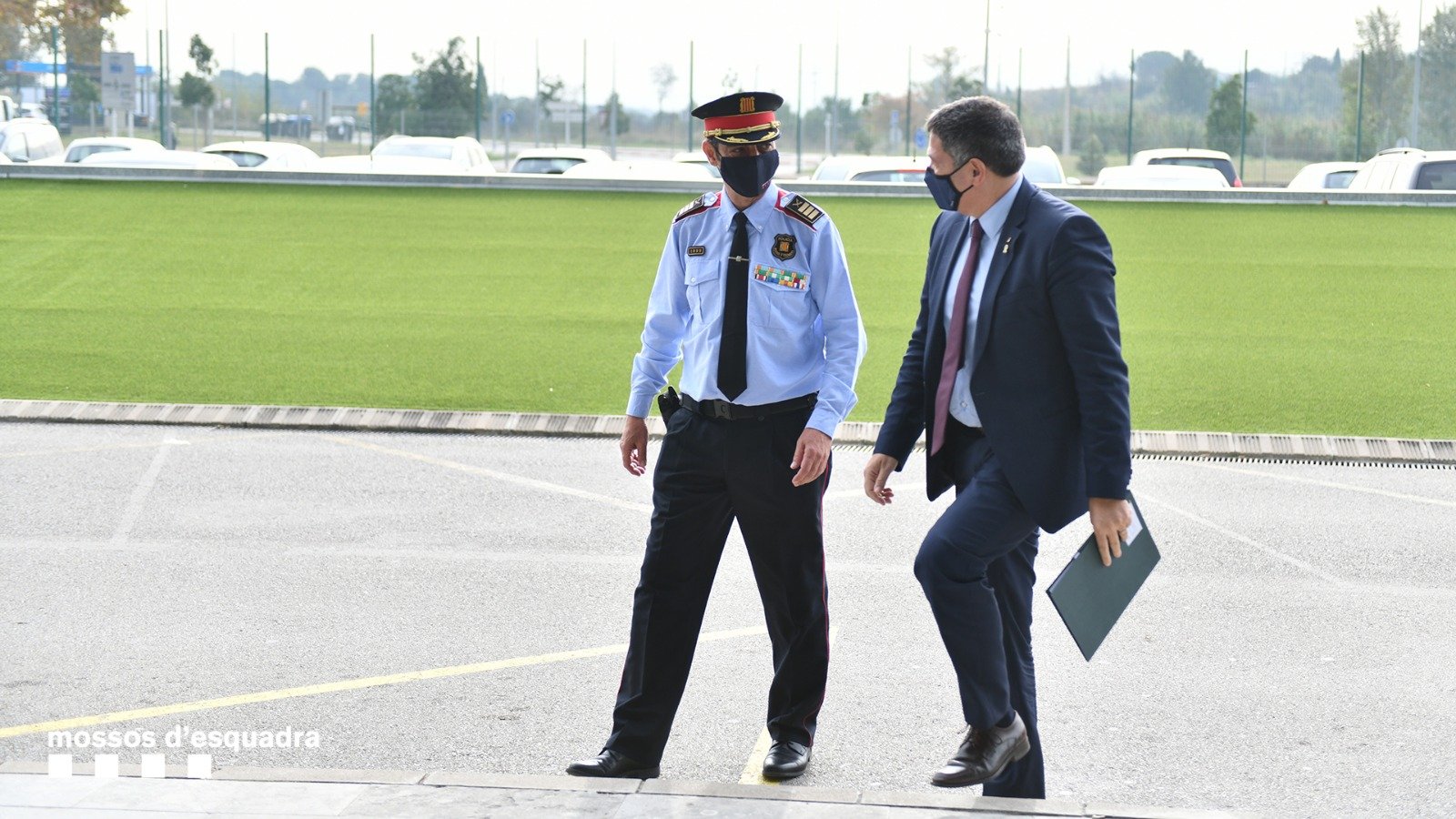Josep Lluís Trapero is back. The Catalan police chief who commanded such respect through his handling of the 2017 terror attacks on Catalonia, and was then dismissed weeks later by Mariano Rajoy's Spanish government and charged with rebellion over his force's policing role during the independence referendum, has now been fully reinstated. Three weeks after a court threw out all the charges against him, he has returned as head of the Mossos d'Esquadra police, and this morning, he met with all the force's commissioners and appeared with the Catalan interior minister, Miquel Sàmper, at the Mossos' Egara headquarters complex in Sabadell.
In a seven-minute speech, he gave his "eternal" thanks for the work of Ferran López, Miquel Esquius and Eduard Sallent, who have commanded the body for the last three years, the three hardest years for the Mossos, in which Trapero himself admitted there has been a loss of public confidence in the corps.
The chief was quick to shoulder his part of the blame. "My defence of the force was not well understood. It led to personal relationships that became complicated," he said, making clear reference to the tension that existed in the days before the 2017 referendum with the leaderships of the Civil Guard, the Spanish National Police and Diego Pérez de los Cobos, sent by the Spanish state to coordinate the police operation. In fact, today Trapero has already called the heads of the Spanish security bodies, both in Barcelona and Madrid, announcing a forthcoming visit, and from whom he received, he said, a very good response.
Police chief Trapero begins his speech with a message of support to the victims of the 2017 terror attacks, with the trial currently underway in Madrid of alleged members of the attack plot.
Trapero also made it clear that he wants to remove the Mossos d'Esquadra from the focus of the media, and above all, from political debate. "I believe in accountability and transparency. But we need to be out of the media spotlight on issues that are not specific to the police force."
Indeed, on Trapero's list of the errors committed is the image that the Mossos projected: "We gave an image which was not what the force was doing".
"The corps is a part of my life"
Josep Lluís Trapero has returned to work as head of the Catalan police corps after a personal and professional reflection. And finally on Thursday, he communicated his decision to the interior minister "because this corps is part of my life. I have much work to do."
The chief made his decision after discussing his return with different senior figures: "I have spoken with commanders and I feel supported in my decision."
Trapero's team
It will take a few more days to find out what the new organigram looks like. But chief Trapero has already made it clear that his trusted figures from his earlier stage as well Eduard Sallent, the chief commissioner who is now stepping aside, will be there. Joan Carles Molinero, Ferran López and Miquel Esquius will have "a place in the structure where their potential can be used for the benefit of the police force".
Ferran López had to take command of the corps after the Spanish government imposed direct rule on Catalonia in 2017 in order to prevent a Civil Guard commander from taking the reins of the force. He was in the media spotlight, but throughout his career has done a quiet job and for the past three years has been a key figure in Trapero’s judicial defence strategy.
Miquel Esquius was chief commissioner after minister Miquel Buch dismissed López, who had been marked by the direct rule period under Article 155. Esquius, however, decided to leave the post last summer and Buch appointed Eduard Sallent. A profile completely opposite to that of Trapero, but one that will now also have a place in the force's leadership structure.

